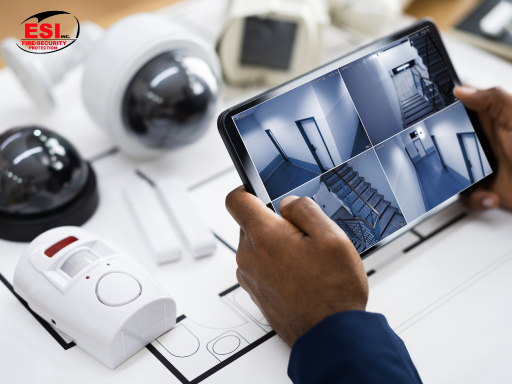Discover the critical role of intrusion alarms as the frontline defense against unauthorized access in commercial settings. This comprehensive guide explores the importance, functionality, and benefits of intrusion alarms, offering practical tips for businesses looking to enhance their security systems.
In today’s rapidly evolving business landscape, the security challenges facing companies are more complex and demanding than ever before. Protecting sensitive information and safeguarding valuable physical assets are not just priorities—they are necessities. In this context, the importance of robust security solutions cannot be overstated. Intrusion alarms stand out as a pivotal element in any effective security strategy. These sophisticated systems not only serve as a powerful deterrent against unauthorized access but also offer business owners and operators peace of mind. Countless studies underscore the efficacy of alarm systems in reducing crime, reinforcing their critical role as the frontline defense in safeguarding businesses. As threats become more sophisticated, so do the solutions, ensuring your business remains secure and resilient.
Understanding Intrusion Alarms:
Intrusion alarms are designed to detect unauthorized entry into a building or area, immediately alerting the business owner or security personnel to potential breaches. These systems are typically composed of various sensors, control panels, and alert mechanisms that work in harmony to monitor and secure the premises.
The most common types of sensors include:
-
Motion Detectors: Using infrared or microwave technology, these sensors identify movement within a specific range. They are ideal for large open spaces like warehouses or retail floors.
-
Door/Window Sensors: These small devices are installed on entry points and are triggered when a door or window is opened. They are essential for perimeter security.
-
Glass Break Sensors: Capable of detecting the sound or vibration of breaking glass, these sensors offer additional protection for windows and glass doors.
When an intrusion is detected, the control panel processes the signals from these sensors and triggers an alarm, which can be an audible siren or a silent alert sent directly to a security monitoring service.
Benefits of Intrusion Alarms:
-
Deterrence: The mere presence of an intrusion alarm system acts as a deterrent to potential intruders. Visible sensors and warning signs can make criminals think twice before attempting a break-in.
-
Rapid Response: In the event of a breach, intrusion alarms facilitate quick responses by alerting law enforcement or private security services. This rapid reaction can minimize potential damage or loss.
-
Comprehensive Monitoring: Modern intrusion alarms often integrate with other security systems, such as video surveillance and access control, providing a holistic view of security and enabling detailed incident analysis.
-
Peace of Mind: Knowing that your business is protected by an effective intrusion alarm system provides invaluable peace of mind, allowing you to focus on operational priorities without constant security worries.
Real-World Applications:
Consider the case of a large retail chain that faced repeated break-ins. By implementing a state-of-the-art intrusion alarm system with advanced motion detectors and perimeter sensors, they were able to significantly reduce incidents of theft. The system’s integration with their existing video surveillance allowed for real-time monitoring and quick intervention by security personnel. As a result, the retailer reported a marked improvement in both security and employee confidence.
Choosing the Right Intrusion Alarm System:
When selecting an intrusion alarm system, businesses should consider several key factors to ensure optimal protection:
-
Customization: Choose a system that can be tailored to the specific needs of your business. Factors such as the size of the premises, the nature of your operations, and the level of risk should all inform your decision.
-
Scalability: As your business grows, your security needs may evolve. Select a system that can be easily expanded or upgraded to accommodate new requirements.
-
Integration Capabilities: Look for systems that can integrate with your existing security infrastructure, including video surveillance and access control systems, for a unified approach to security.
-
Professional Monitoring: Consider opting for a professionally monitored system, where alerts are sent to a monitoring center that can dispatch emergency services if necessary.
-
Ease of Use: Ensure the system is user-friendly, with intuitive controls and straightforward maintenance procedures.
Conclusion:
Intrusion alarms play a pivotal role in protecting businesses from unauthorized access and potential threats. By investing in a robust and effective alarm system, businesses can significantly reduce the risk of break-ins and other security breaches, safeguarding both physical and digital assets. As technology continues to advance, so too do the capabilities of intrusion alarms, offering businesses more sophisticated and reliable protection than ever before. By choosing the right system and integrating it into your overall security strategy, you can ensure that your business remains secure, resilient, and prepared for any challenges that may arise.



